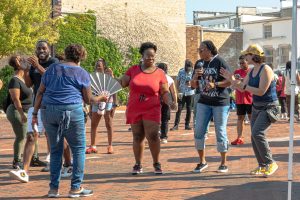Council proposes cleanup
By Nina Gougis
| April 19, 2004
Local church to discuss healing, faith at weekend conference
By David Gomez
| March 25, 2004
Gambling on a Casino
By Libby John
| March 22, 2004
Speech to highlight renowned dancers
By David Gomez
| March 16, 2004
Defining a license to serve
By Nicholas Alajakis
| February 20, 2004
Singled out
By Casey Toner
| February 12, 2004
Toilet Bowl ends in a tie
By Casey Toner
| February 2, 2004
Woodridge man tries to kidnap his daughter
By Nicholas Alajakis
| January 22, 2004
Greeks stay up for charity
By Dave Gomez
| January 21, 2004
Fire Dept. receives grant
By Nicholas Alajakis
| January 13, 2004
Israeli lecture tour visits DeKalb
By Sean Thomas
| November 11, 2003
ITS to change the logon process for NIU’s network
By Mike Neumann
| November 10, 2003
Advertisement
Advertisement
Advertisement
Advertisement
Advertisement
Advertisement






